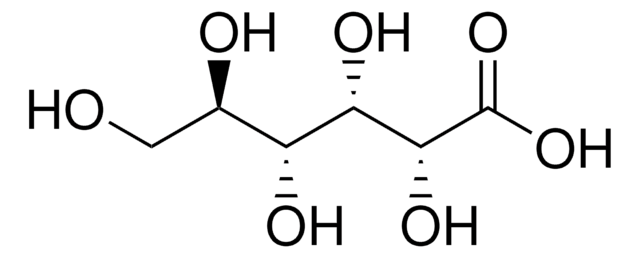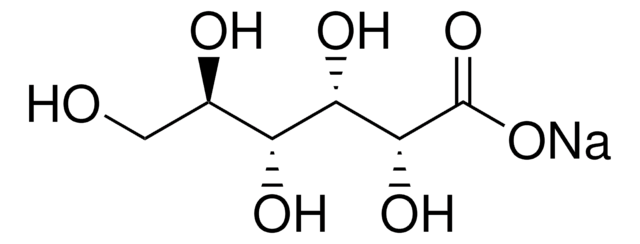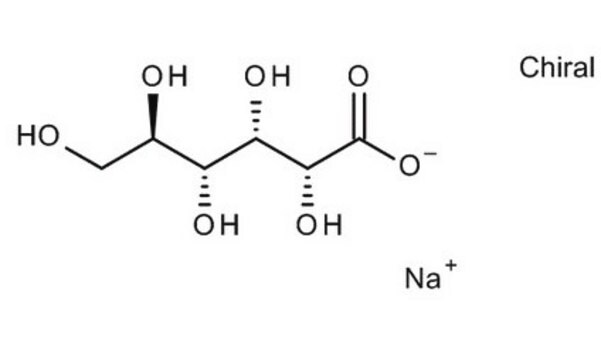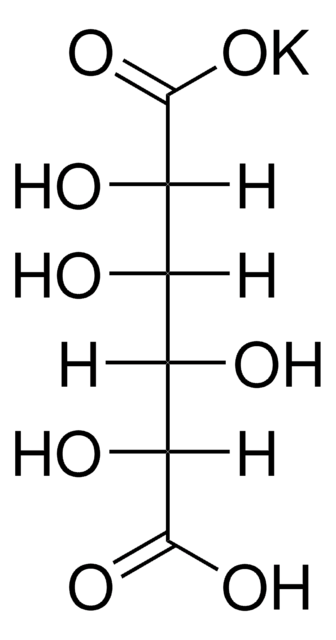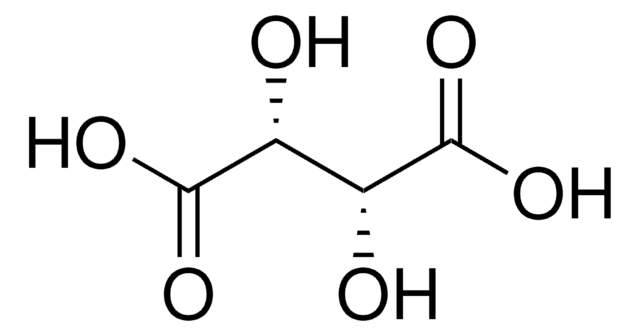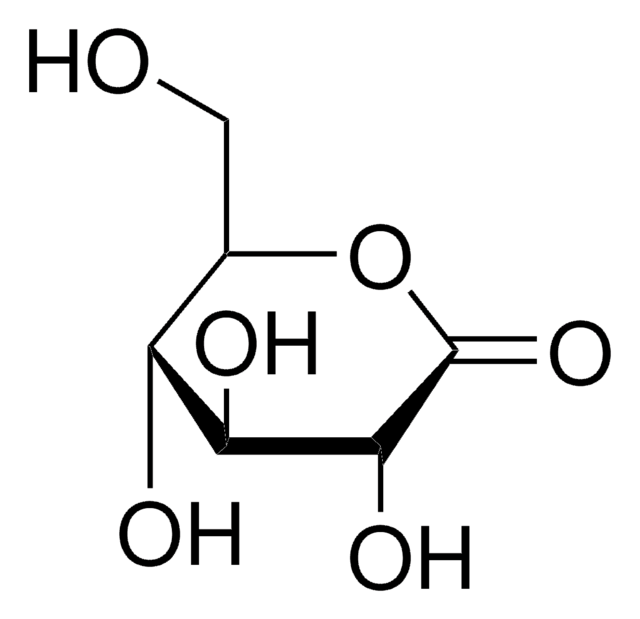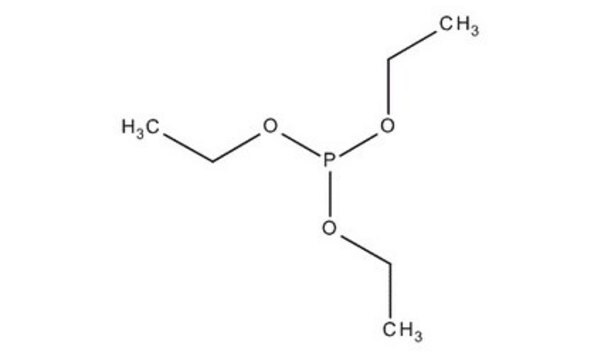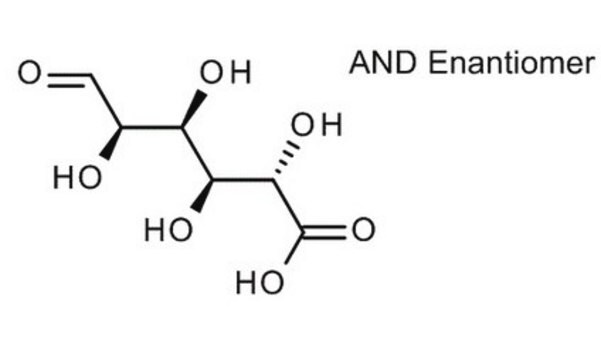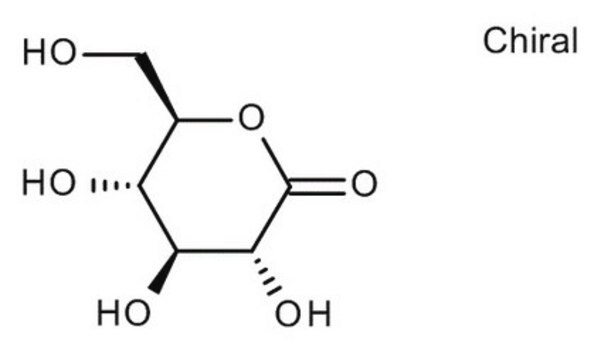8.22057
Gluconic acid
(50% solution in water) for synthesis
Synonym(s):
2,3,4,5,6-Pentahydroxycaproic acid
Sign Into View Organizational & Contract Pricing
All Photos(1)
About This Item
UNSPSC Code:
12352106
NACRES:
NA.22
Recommended Products
Quality Level
form
liquid
pH
2.2 (20 °C, 500 g/L in H2O)
bp
105-106 °C/1013 hPa
density
1.24 g/cm3 at 20 °C
storage temp.
2-30°C
Application
- Biodegradable chelating agent for wastewater treatment: Gluconic acid serves as a biodegradable chelating agent that enhances metal ion removal in wastewater treatment processes. This application is valuable for environmental sustainability and industrial wastewater management (Galaz et al., 2024).
- Pharmaceutical production optimization: Gluconic acid is used in pharmaceutical production, where its properties help in the optimization of medication formulations. This application ensures effective drug delivery and stability, crucial for therapeutic efficacy (Xing et al., 2024).
- Food preservation: In the food industry, gluconic acid is applied as a natural preservative, enhancing the shelf life and safety of food products. Its use supports food safety regulations and consumer health (Lu et al., 2024).
- Enhancement of bioenergy production: Gluconic acid contributes to the enhancement of bioenergy production processes, particularly in biofuel production through fermentation optimization techniques. This application is key to advancing renewable energy technologies (Liu et al., 2024).
- Research tool in metabolomics: Utilized as a research tool in metabolomics, gluconic acid aids in the study of metabolic processes in various biological systems, providing insights into cellular functions and disease mechanisms (Patakova et al., 2024).
Analysis Note
Assay (acidimetric): 48.0 - 52.0 %
Density (d 20 °C/ 4 °C): 1.230 - 1.245
Density (d 20 °C/ 4 °C): 1.230 - 1.245
Storage Class Code
10 - Combustible liquids
WGK
WGK 1
Certificates of Analysis (COA)
Search for Certificates of Analysis (COA) by entering the products Lot/Batch Number. Lot and Batch Numbers can be found on a product’s label following the words ‘Lot’ or ‘Batch’.
Already Own This Product?
Find documentation for the products that you have recently purchased in the Document Library.
Customers Also Viewed
Our team of scientists has experience in all areas of research including Life Science, Material Science, Chemical Synthesis, Chromatography, Analytical and many others.
Contact Technical Service